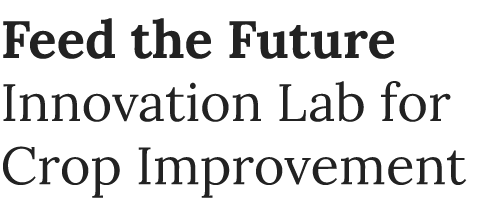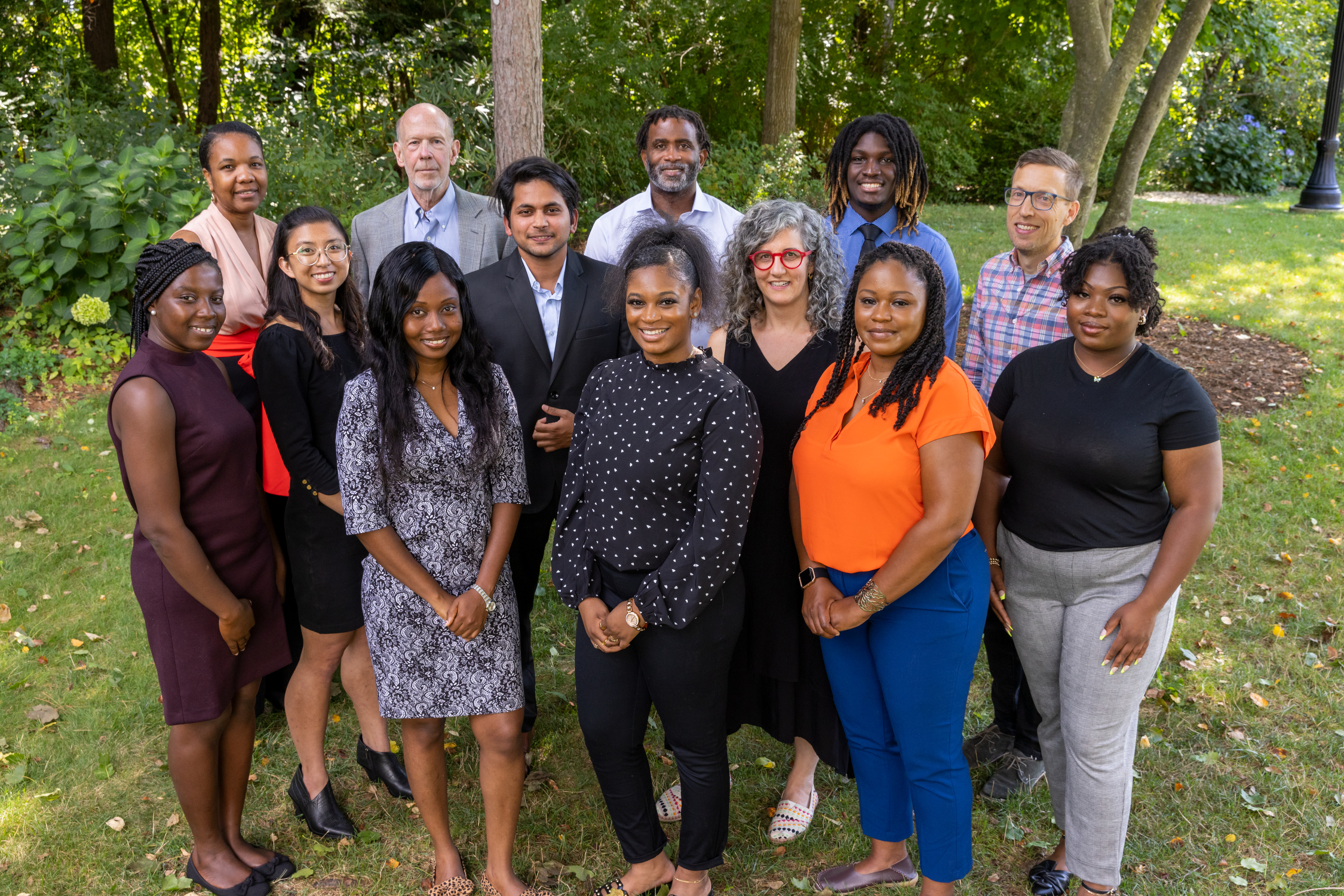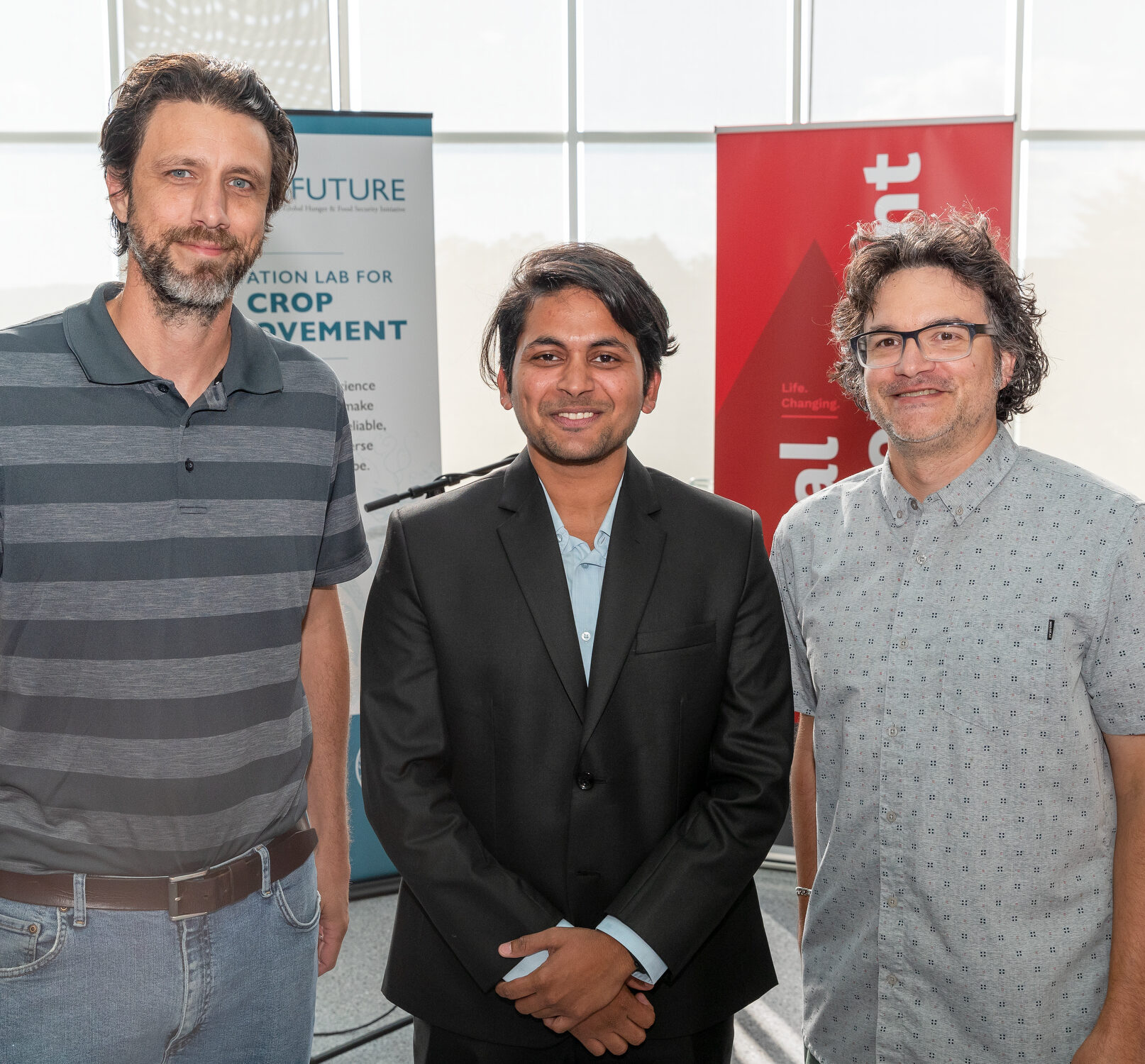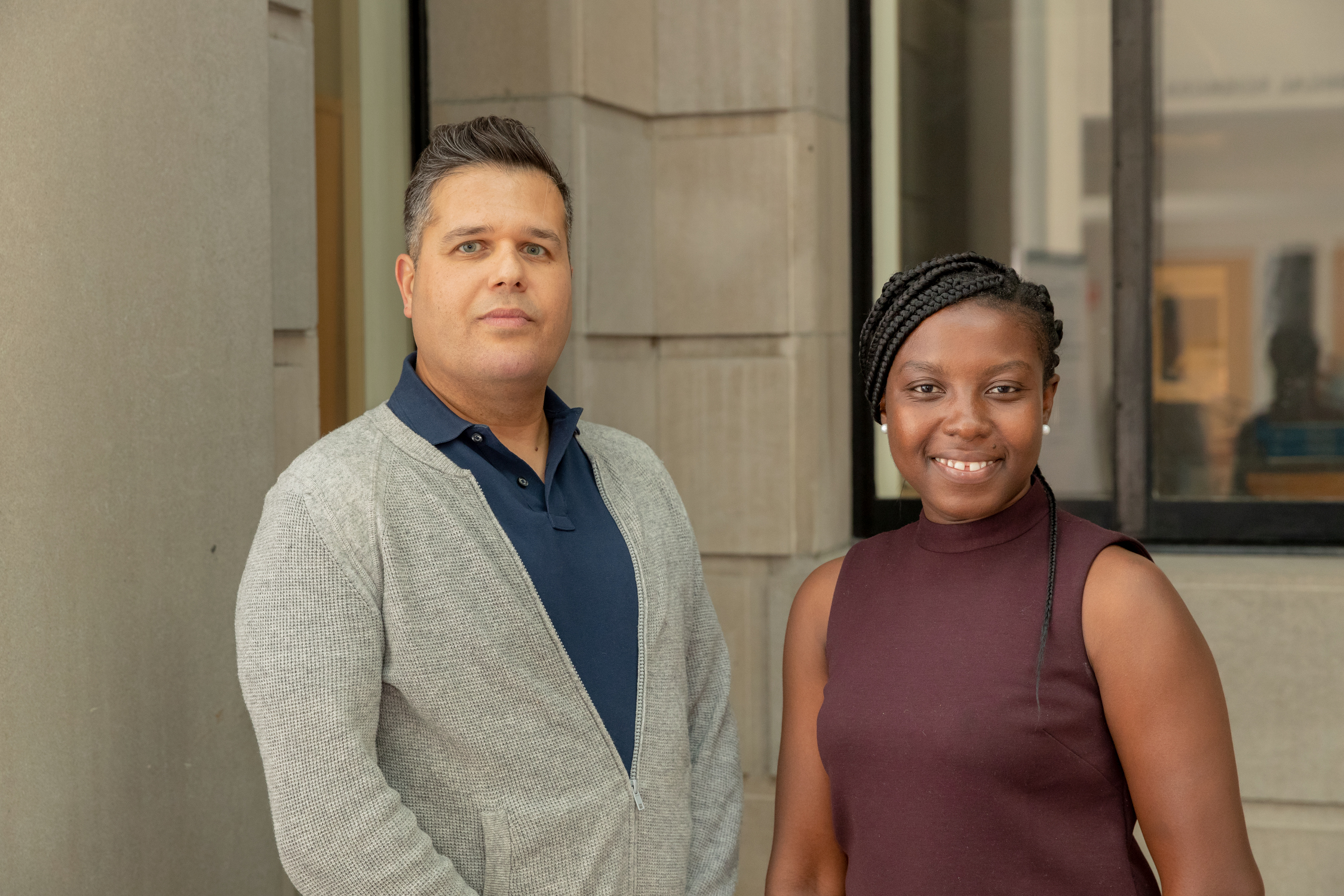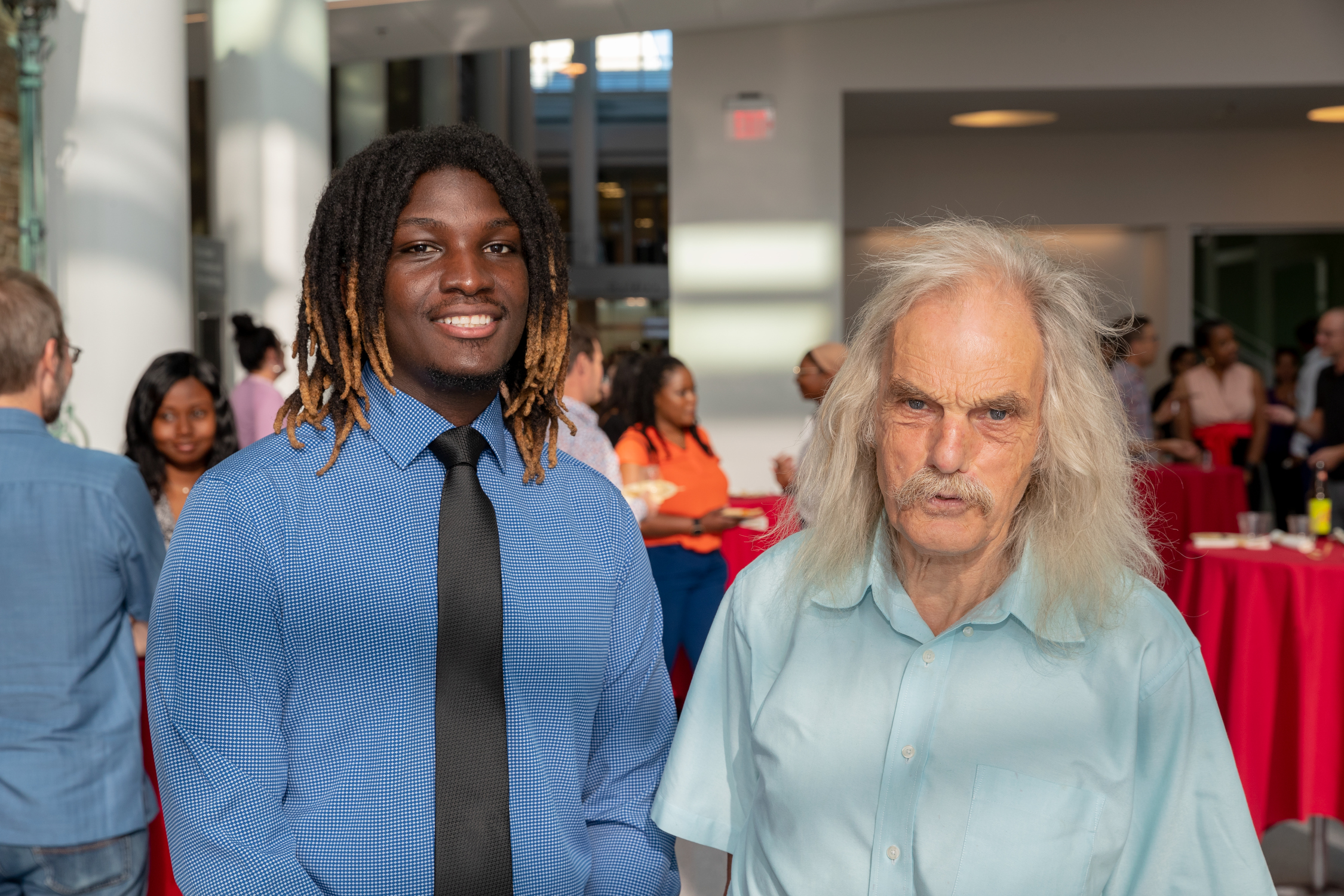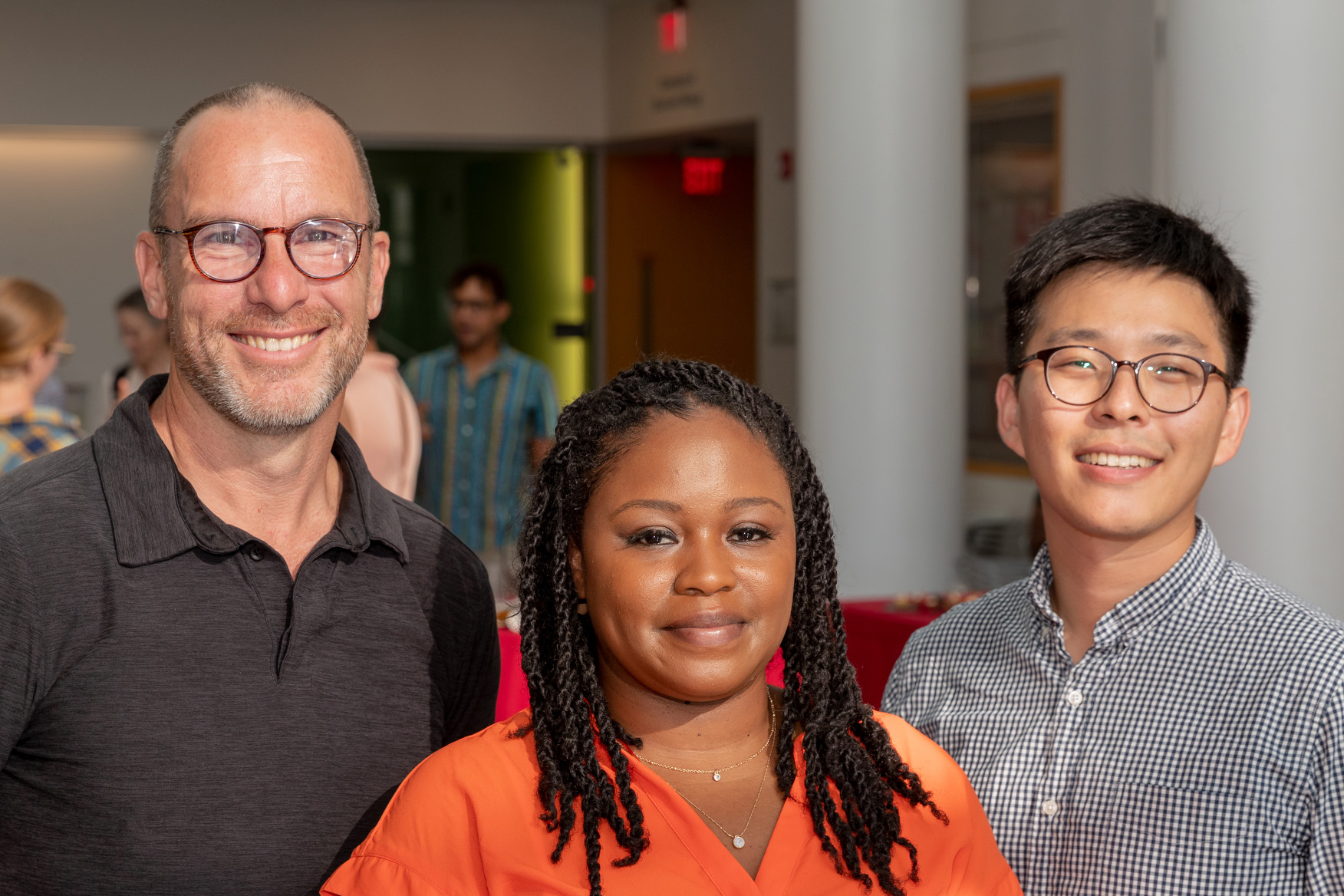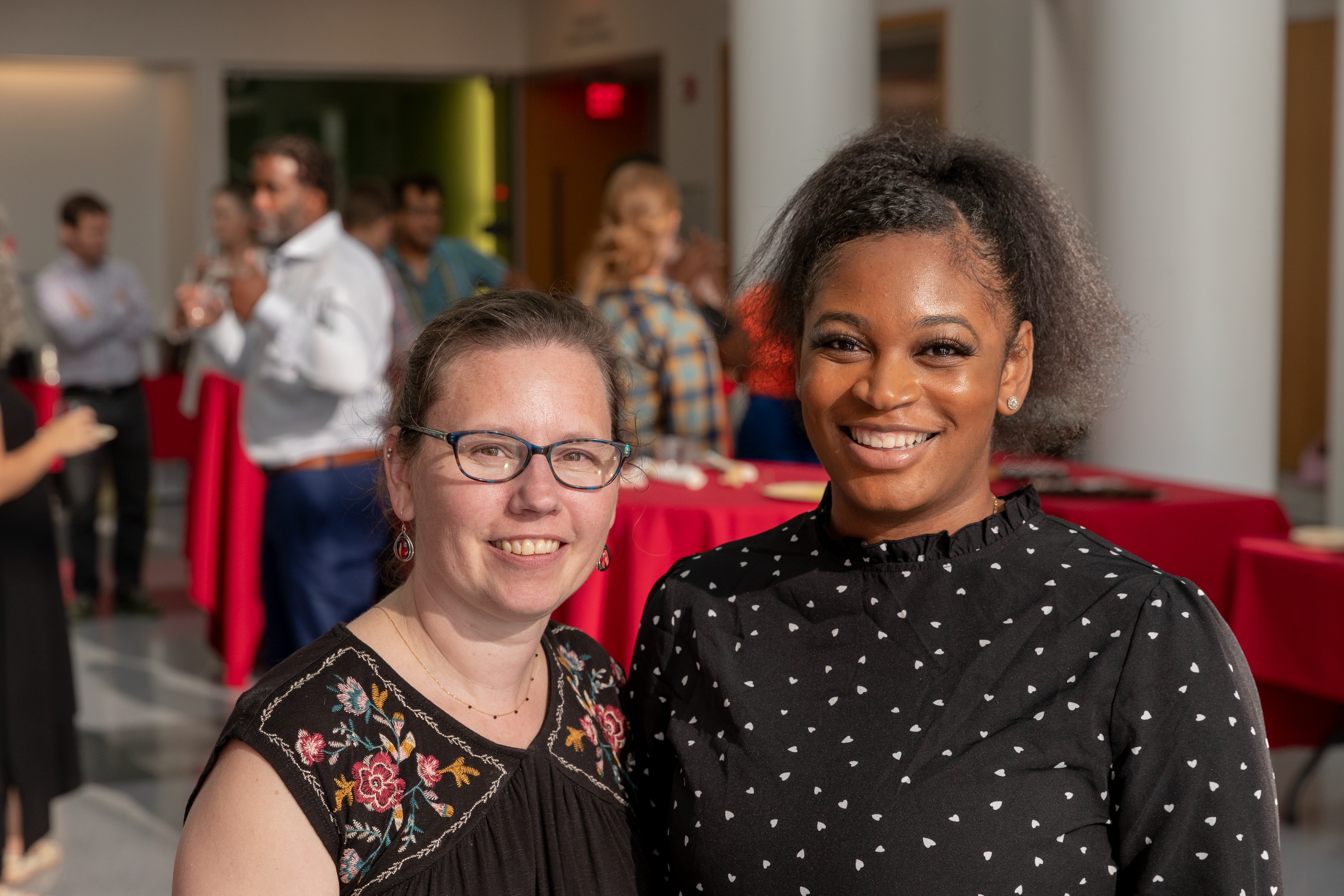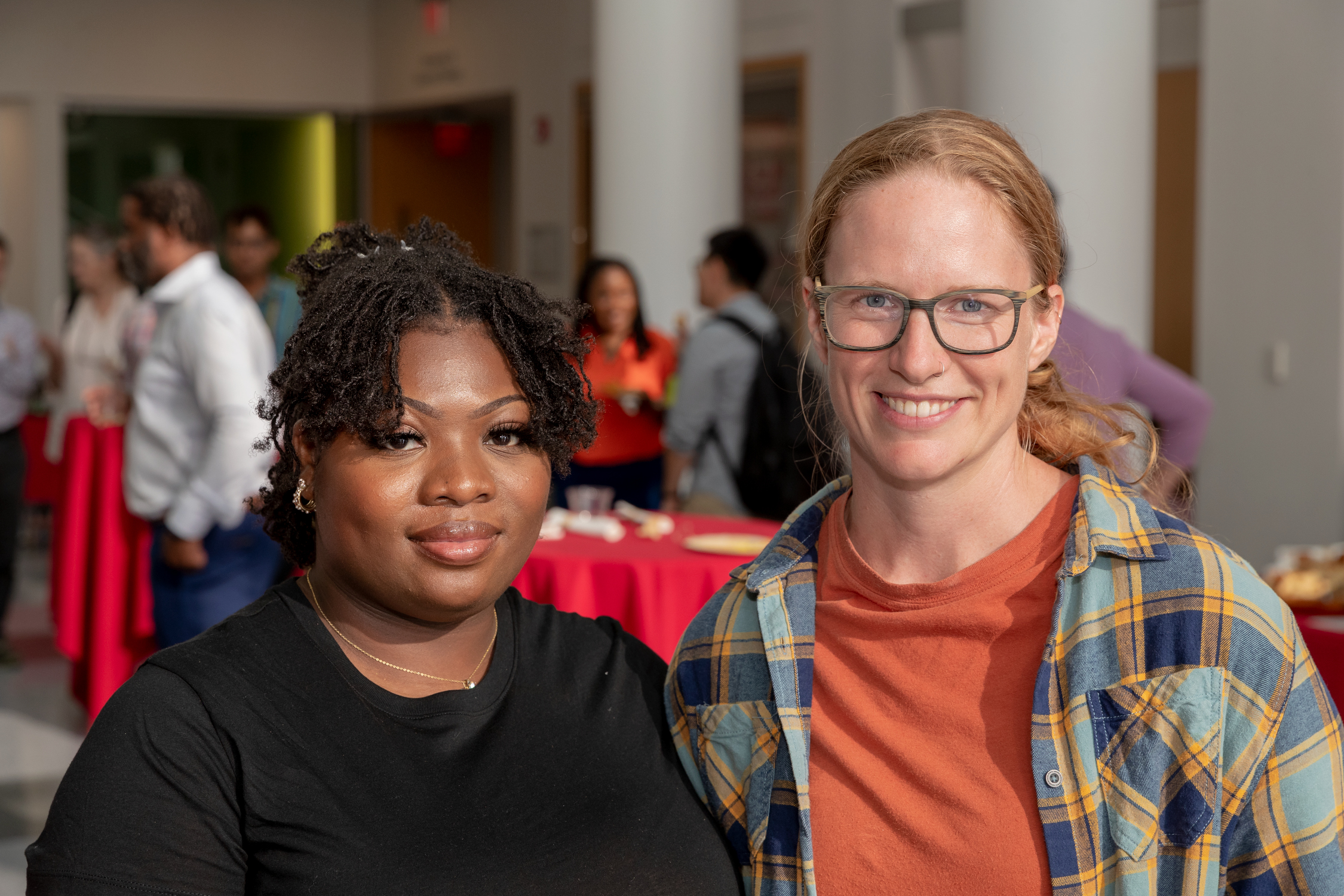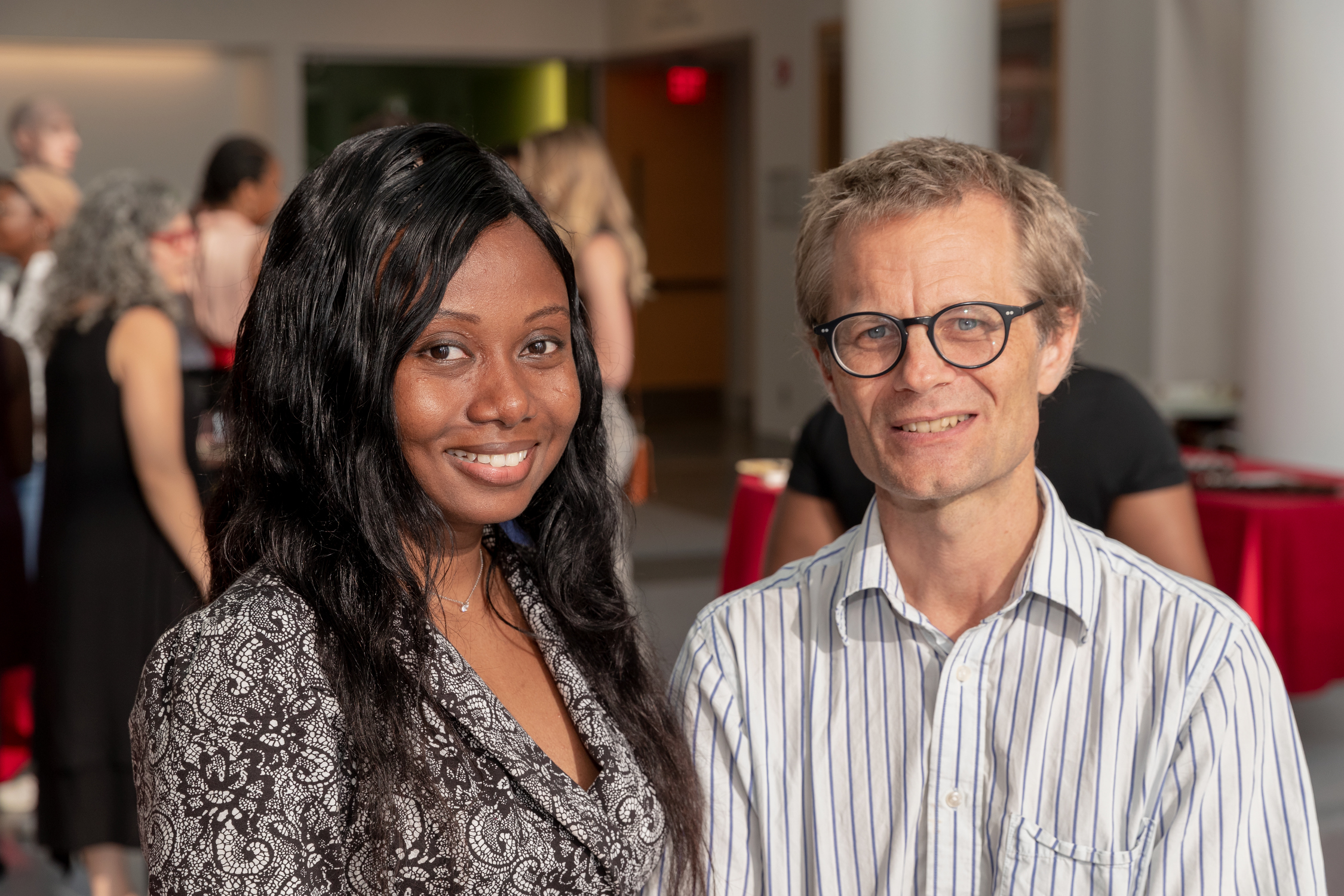Eight graduate students from Historically Black Colleges and Universities (HBCUs) arrived at Cornell in August as the inaugural cohort of Thomas Wyatt Turner Fellows, as participants in a one-year program designed to support next-generation leaders in inclusive and sustainable agricultural development.
At Cornell, the Turner Fellows are taking graduate courses and engaging in research, and on August 31, they were celebrated by the Cornell community at a welcome reception attended by Cornell faculty mentors, and program partners across the College of Agriculture and Life Sciences (CALS) and the Graduate School.
“As our state’s Land-Grant university, Cornell is proud of its commitment to opportunity,” said Ben Houlton, the Ronald P. Lynch Dean of CALS.
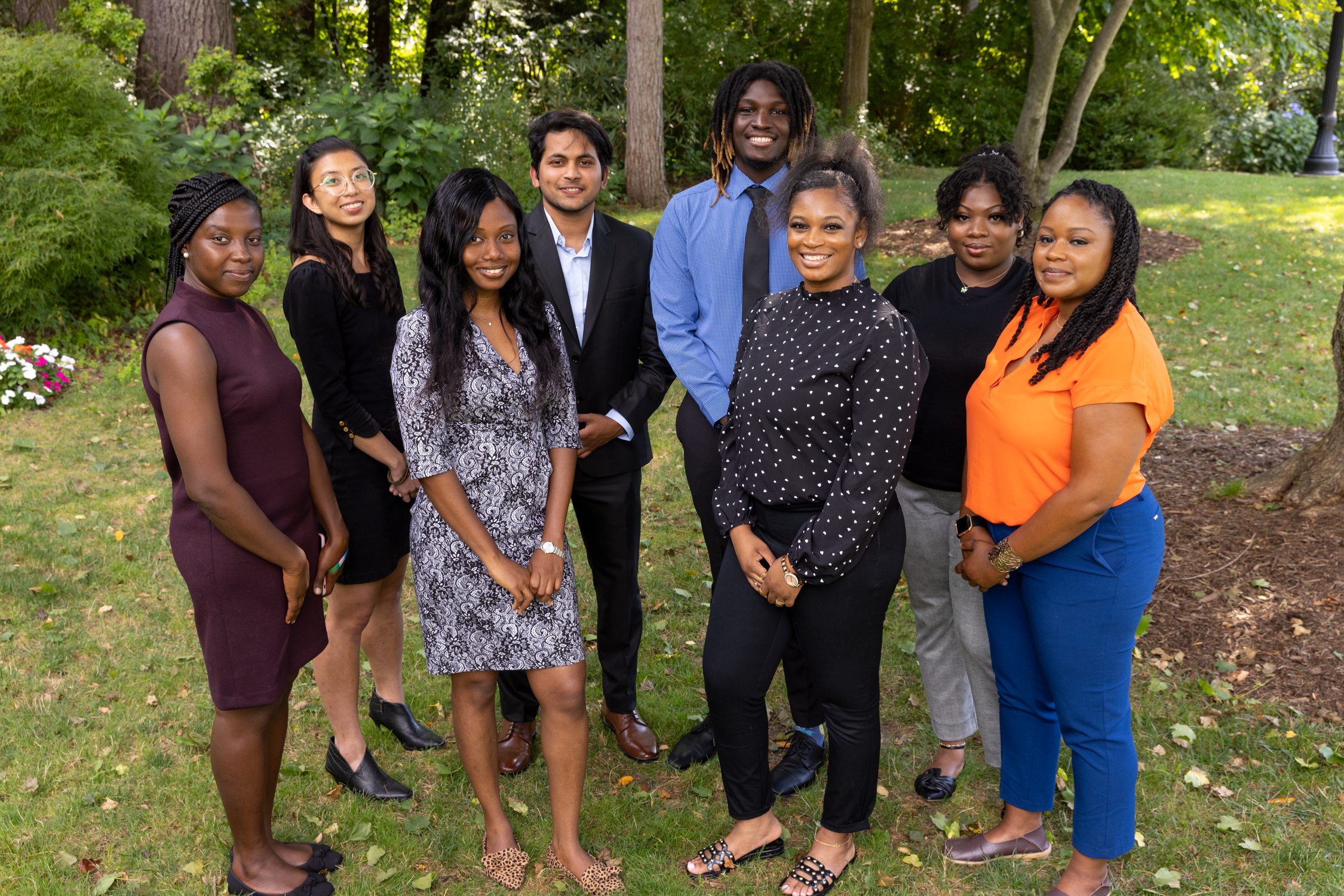
Above: 2022-23 cohort of Thomas Wyatt Turner Fellows
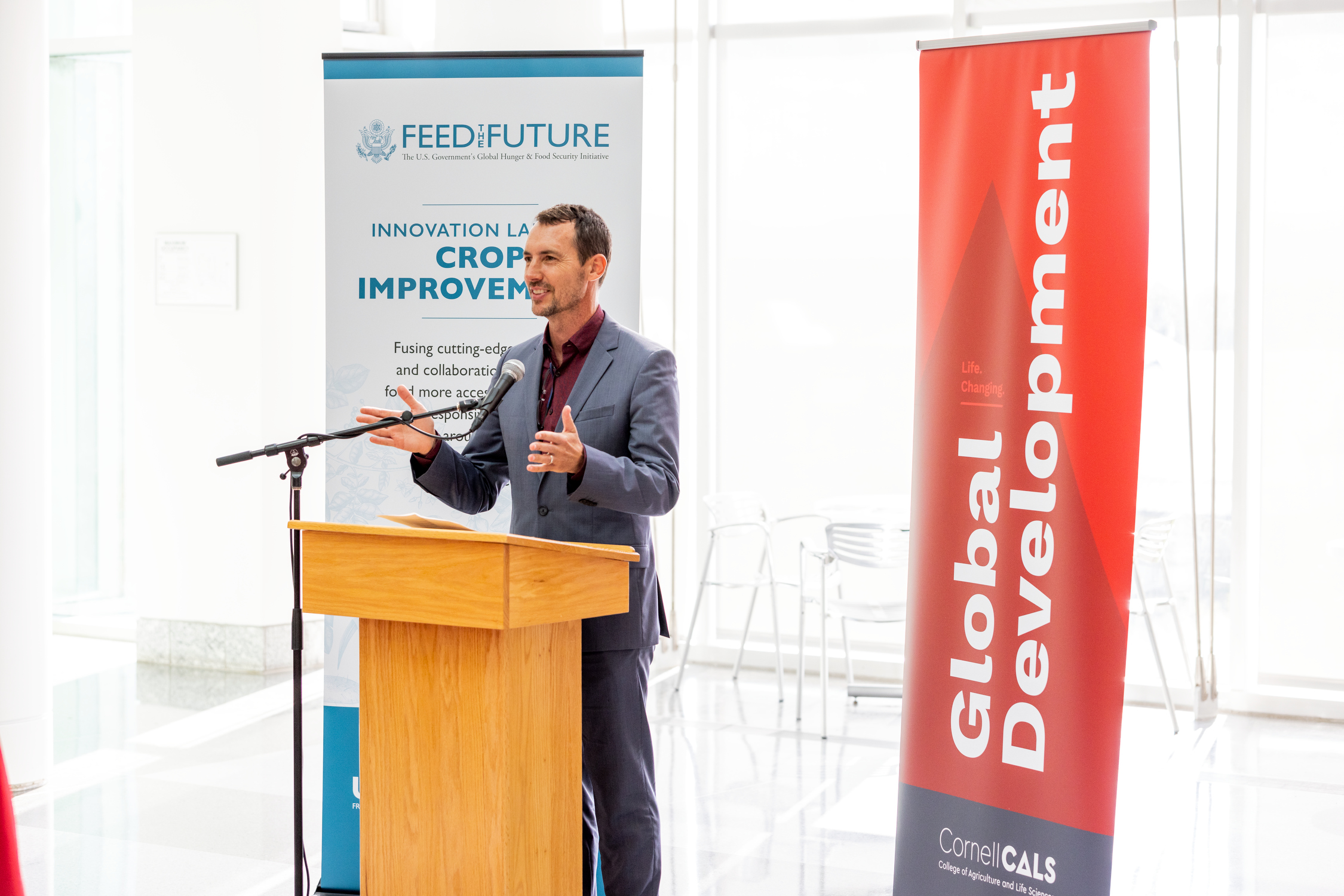
Above: Ben Houlton, Ronald P. Lynch Dean of CALS, speaks at the Turner Fellowship welcome reception.
”We work every day to deliver on this commitment to engage and strengthen our communities by addressing real-world needs. And we look forward to your partnership in this work.
- Dean Ben Houlton
Hosted by the Feed the Future Innovation Lab for Crop Improvement, the fellowship aims to build bridges between Cornell and 1890 land-grant institutions, which are HBCUs that were established under the Second Morrill Act of 1890. In the program’s first year, the fellows hail from Delaware State University, North Carolina A&T State University, Tennessee State University, Tuskegee University and Virginia State University.
The Turner Fellowship is named in honor of Thomas Wyatt Turner, the first Black American to earn a doctorate at Cornell, and the first Black person to earn a doctorate in botany from any U.S. institution.
“We are at a moment in history in which inclusive and sustainable agricultural development is crucially important,” Kathryn Boor, ‘80, dean of the Cornell Graduate School, said at the fellowship welcome reception.
”Agricultural research urgently needs bright young minds like yours to help address the challenges ahead.
- Dean Kathryn Boor
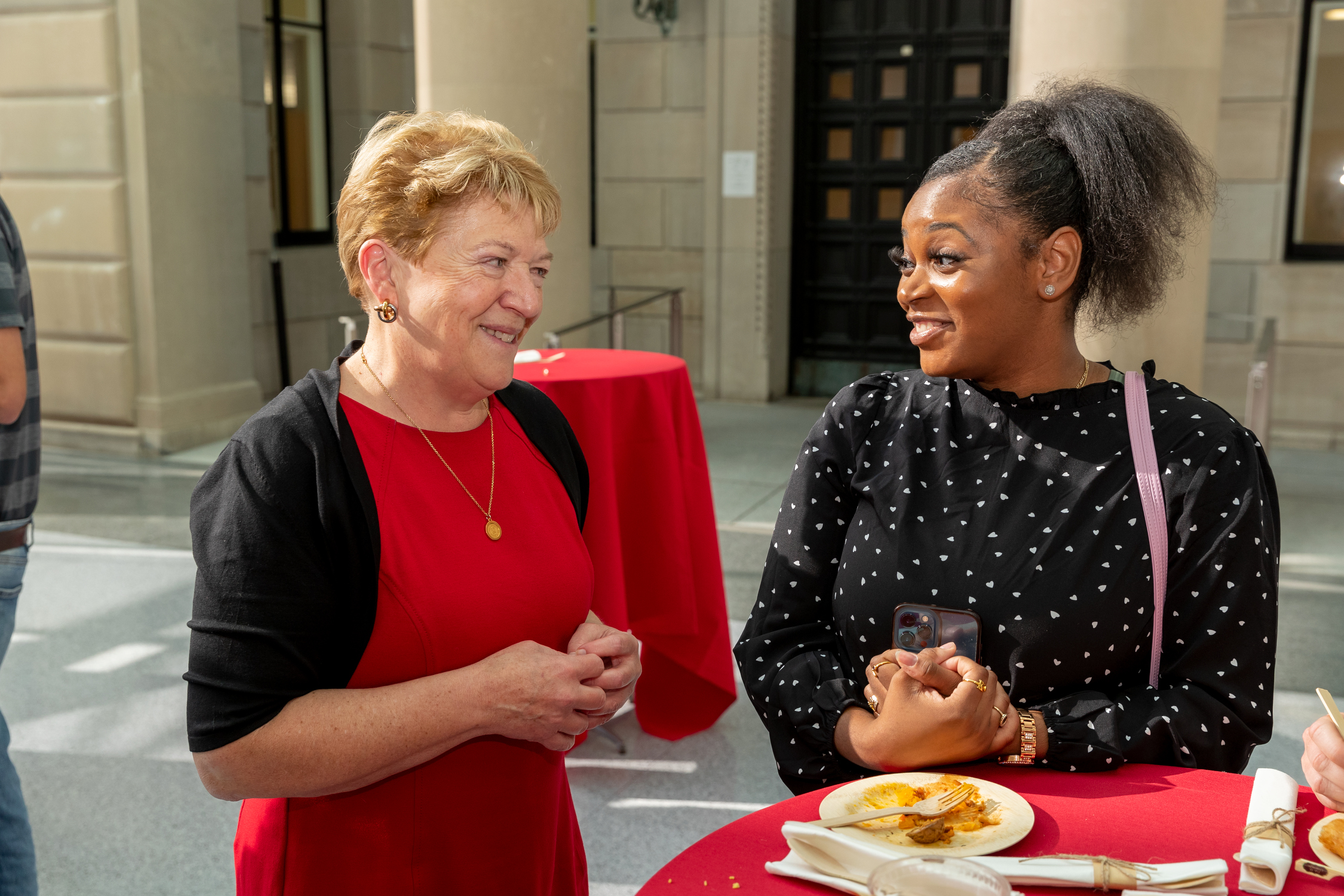
Above: Kathryn Boor ’80, Dean of the Graduate School, speaks with Tekiyah Brewley, Turner Fellow, at the Turner Fellowship welcome reception.
The inaugural cohort of Turner Fellows and their Cornell mentors for the 2022-23 academic year include:
- Abigail Ayorkor Armah: M.S. in Food Science and Biotechnology, Delaware State University (Elad Tako, Department of Food Science)
- Tekiyah Brewley: M.S. Animal and Veterinary Sciences, Tuskegee University (Heather Huson, Department of Animal Science)
- Karter Couser: M.S. Biology, Virginia State University (Chris Roh, Department of Biological and Environmental Engineering, and Anthony Hay, Department of Microbiology)
- Oluwatomi Esther Jacobs: M.S. Plant Genetics and Bioinformatics, Delaware State University (Jean-Luc Jannink, School of Integrative Plant Science)
- Venkata Hemanth Limmada: M.S. Plant Sciences, Delaware State University (Michael Gore and Kelly Robbins, School of Integrative Plant Science)
- Maia Payne: M.S. Environmental Sciences, Tennessee State University (Virginia Moore, School of Integrative Plant Science, and Rachel Bezner Kerr, Department of Global Development)
- Sanchez Rolle: M.S. Public Health and Ph.D. Integrative Biosciences, Tuskegee University (Tammo Steenhuis, Department of Biological and Environmental Engineering)
- Lauren San Diego: M.S. Food and Nutrition, North Carolina A&T State University (Miguel Gomez, Charles H. Dyson School of Applied Economics and Management and Department of Global Development and Hale Ann Tufan, School of Integrative Plant Science and Department of Global Development)
Above: 2022-23 cohort of Thomas Wyatt Turner Fellows alongside their Cornell faculty mentors.
Mentorship is a key component of the fellowship that allows Cornell and 1890 faculty and students to connect in ways that contribute significantly to their growth and development as scholars, according to Levon Esters, director of the fellowship and professor and associate dean for diversity, equity & inclusion and faculty affairs in the Purdue Polytechnic Institute at Purdue University.
”We are excited to see our fellows and faculty engaging in meaningful, culturally responsive relationships. Effective mentorship is an acquired skill that mentors must continue to develop, no matter their years of experience.
- Levon Esters
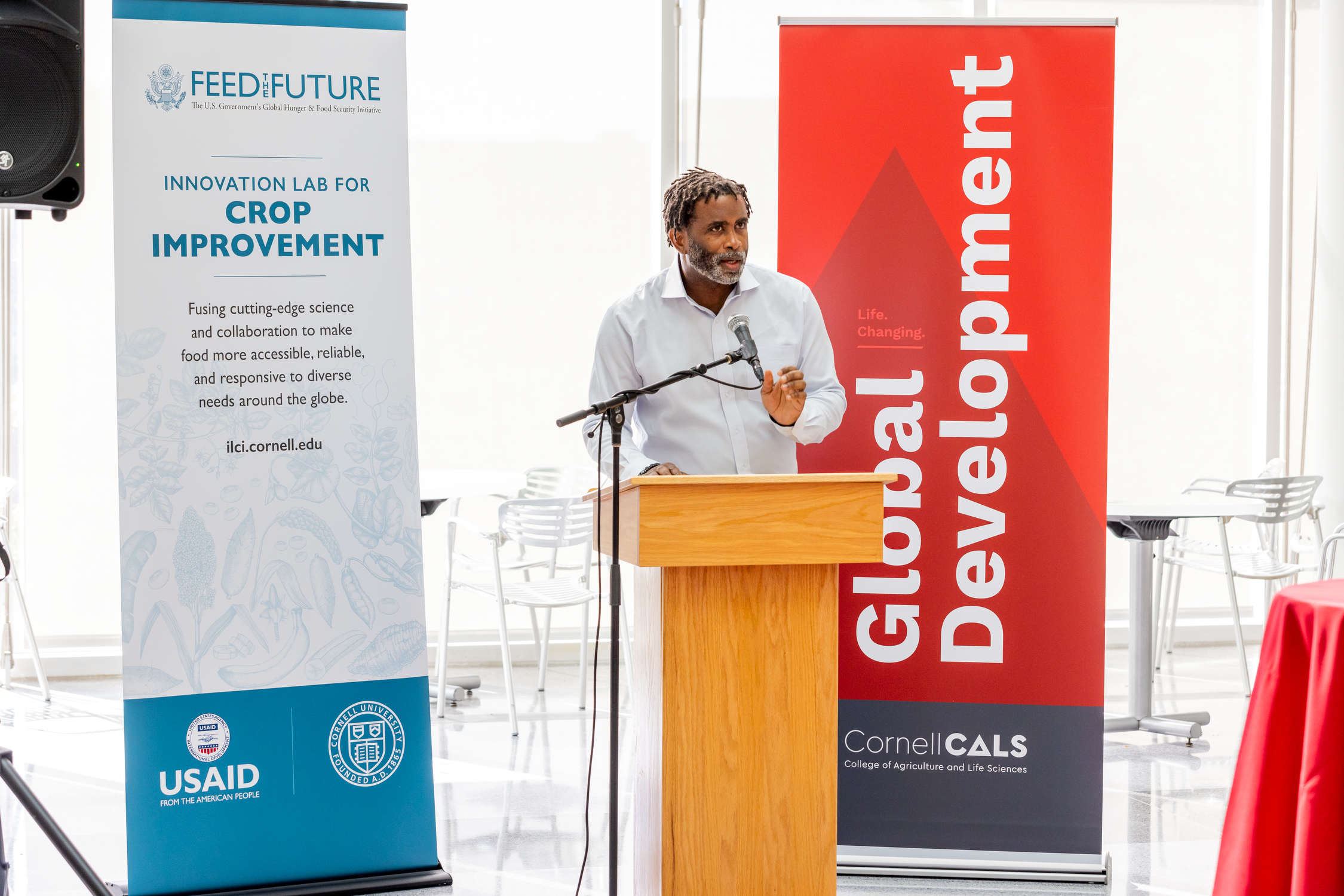
Above: Levon Esters, director of the Turner Fellowship, speaks at the Turner Fellowship welcome reception.
“We at Cornell have progressed on our path to becoming an institution that not only offers the opportunity for any person to pursue any study, but that actively seeks to build a culture where all can thrive,” said Hale Ann Tufan, associate professor in the School of Integrative Plant Science. Tufan serves as a priority setting researcher with ILCI and faculty mentor in the fellowship.
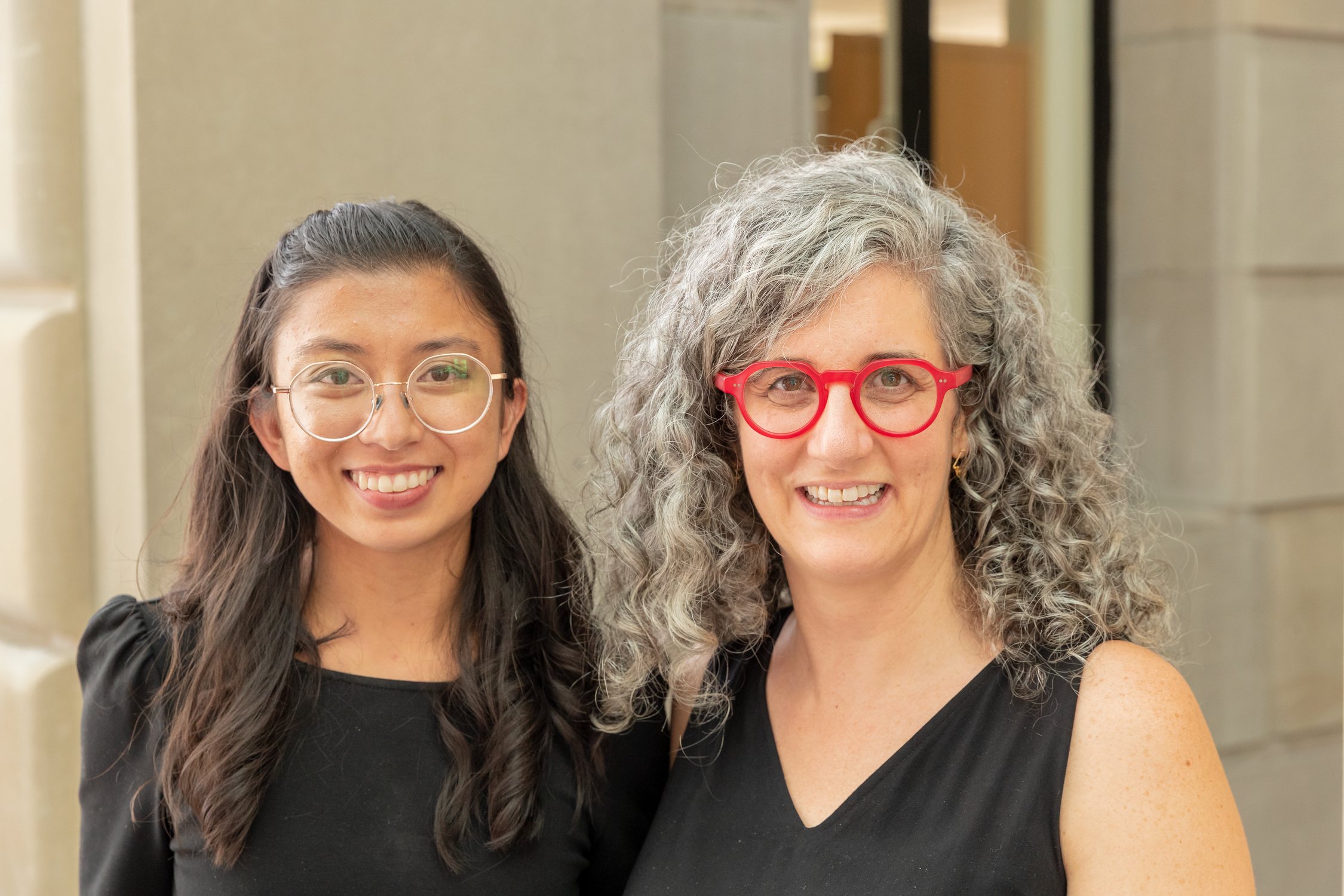
Above: Hale Ann Tufan with her Turner Fellow mentee, Lauren San Diego, at the Turner Fellowship welcome reception.
”We all have a role to play to become an institution where a motto becomes reality.
- Hale Ann Tufan
The Turner Fellowship program is made possible by a grant from the U.S. Agency for International Development (USAID) as part of Feed the Future, the U.S. government’s global hunger and food security initiative, with additional support from the Cornell Graduate School, especially its Office of Inclusion and Student Engagement, and School of Integrative Plant Science. The Innovation Lab for Crop Improvement is housed in the College of Agriculture and Life Sciences’ Department of Global Development.
